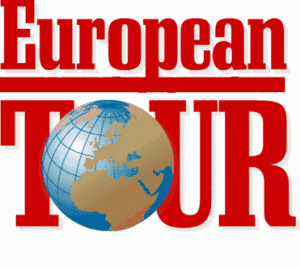The autumn tour of Challenging Coaching has now come to an end. This has included London, Coventry, Warrington, Stockholm and Dusseldorf! John and I have presented to internal coaches as part of their continuing professional development, to a group of international leaders on how to use Challenging Coaching skills on a day-to-day basis, and to two groups of experienced coaches and consultants wishing to enhance their coaching skills. I would like to highlight one topic from each session that is of particular interest (though this is a difficult task given the richness of debate during the sessions).
Coventry: When discussing Courageous Goals, we gave the example of Alan Campbell, our friend the single sculler, who won a bronze medal at the London Olympics in 2012. This was the achievement of Alan’s ten-year courageous goal. A delegate commented that people such as Alan are exceptional and so this example was not relevant to normal people. At this point another delegate asked “who here has achieved a dream?” to which ten people raised their hand. This was a great question from a fellow delegate, raising awareness that we can all achieve our dreams. We are all exceptional in our own way. Realising the impact of this question, we used it again in subsequent sessions, followed by the statement “now put your hand down if you are not a normal person”. Of course everyone keeps their hand up because we are normal and exceptional at the same moment. It is time to dream, share, and start your journey towards your courageous goal.
Warrington: There was an interesting discussion around contracting and whether we need to contract for conversations outside coaching. This was the basis of my blog of 9th November and provided some interesting discussion on the Challenging Coaching LinkedIn group regarding implicit contracting, psychological contracts, situational leadership and being part of a tribe! Read more here
Stockholm: The evaluation feedback from delegates was interesting, highlighting cultural differences. The Challenging Coaching for Leaders workshop was one module of a three-day programme and received the widest spread of delegate evaluation scores. For some it was the best module of the programme scoring the highest marks. However, for other delegates it was the worst module of the three days. Such a wide distribution of evaluation scores is rarely seen. On further analysis this highlighted a significant cultural difference and stemmed from the expectations of the delegates. It seemed that the South American delegates wanted a lecture from an expert and expected to listen, take notes and learn. However, the northern European delegates enjoyed the facilitated interaction and exercises of the workshop. This highlights the need for explicit ‘contracting’ of requirement, expectations and deliverables before the delivery of international programmes. This would avoid assumptions being made by programme designers, facilitators and delegates alike.
London: During another lively discussion amongst experienced coaches, one participant used the phrase meta-awareness, suggesting that we need to be aware of our levels of awareness. This was during the debrief of the Challenging Coaching self-assessment questionnaire. The participant said that he provided feedback at times, but not at other times. But he was not aware of what created these different outcomes. He coined the phrase meta-awareness as the first step for him to understand what was happening and understand the context that enabled him to provide feedback. He committed to be aware of his levels of awareness. He would monitor the triggers that enabled or prevented him from providing feedback. This reminded me of the phrase “be aware of what you don’t know”.
Dusseldorf: A new systems thinking exercise was introduced and another exercise expanded to add a new dimension. The systems thinking session of the workshop provides a theoretical input into the three elements of sub-optimisation, emergence and fractals. To augment this a co-coaching activity was added so that participants could consider how the system thinking components could be integrated into their coaching in a practical way. Also the courageous goals activity was modified. Often we ask participants to coach each other around a personal courageous goal and we encourage the coach to challenge with the ‘loving boot’. This can produce some fantastic goals showing real vulnerability and courage. However, this frequently requires the coach to enter the zone of uncomfortable debate (ZOUD) leading to increased levels of tension. So during this exercise participants worked in trios; a coach, coachee and observer. The role of the observer was to plot perceived levels of tension, noting the intervention that led to the change in tension. This enabled a rich debrief at the end of the coaching exercise, helping the coach become more aware of interventions which increased or decreased tension levels.
We are always interested in improving our workshops, what ideas do you have? Where shall we go next? Post your thoughts on the Challenging Coaching LinkedIn Group.
As we have over 80 blogs on the site we now have a blog index that we hope you will find useful.
